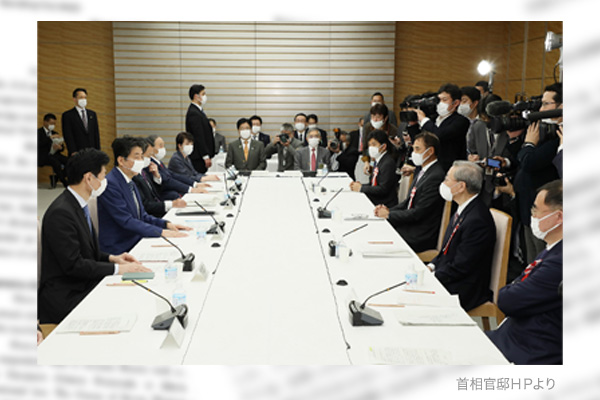Countries have come up with massive economic stimulus packages in response to serious economic losses on the new coronavirus pandemic. While livelihood support and unemployment measures in these packages attract attention, there are moves that we should not overlook. In late March, Western countries launched the enhancement of inward foreign direct investment regulations and the creation or strengthening of sovereign wealth funds to defend domestic companies from foreign buyouts, indicating that they are concerned about the risk of strategic companies being acquired by foreigners amid a stock market crash caused by the pandemic. Particularly, Western countries are alert to buyouts by Chinese funds.
Western countries taking measures to defend strategic companies
The European Commission has urged European Union members to enhance regulations on inward foreign direct investment. Australia has also enhanced such regulations urgently.
We must pay attention to the creation or strengthening of sovereign wealth funds in Germany and the United States. In addition to toughening inward foreign direct investment regulations, these countries are planning to use sovereign wealth funds to prevent their strategic companies from being acquired.
Germany has created a 600 billion-euro economic stabilization fund that would use 100 billion euros for investing in companies related to key technologies and key infrastructure to protect them.
The U.S. has added $500 billion to its foreign exchange stabilization fund not only to bail out Boeing Co. but also to provide loans to or invest in industries that are important for national security.
Japanese package emphasizes short-term measures
How about Japan? The government is now formulating an emergency economic stimulus package focusing on cash-flow support measures for small and medium-sized companies and cash benefits for livelihood support. Obviously these measures are urgently required. However, the problem is that the package covers only short-term measures to address immediate issues. After a stock market crash, important Japanese companies for national security could weaken and become appetizing acquisition targets for foreigners.
The package also includes measures to bring supply chains back to Japan. It is important to reduce the risk of depending on Chinese suppliers. However, these measures target all industries instead of focusing on strategic industries such as pharmaceutical and semiconductor sectors. Furthermore, these measures are limited to conventional subsidies and tax incentives. While anything is better than nothing, these measures’ effects may be limited.
While media reports indicate some investment quotas for large companies, the planned investment of around 100 billion yen in airlines facing a sharp drop in demand is meaningless. In view of foreign countries’ policies, the government should strategically consider support targets and sizes.
As economy and national security are being integrated amid U.S.-China confrontation, the new coronavirus pandemic has been accelerating such integration. At a time when Western countries are desperately trying to secure key industries required for national security, Japan also should have a greater sense of crisis.
Japan revised its Foreign Exchange and Foreign Trade Act to toughen control on inward foreign direct investment, catching up with Western countries. However, the measure is still insufficient. Japan should make strategic efforts by urgently creating a sovereign wealth fund. The creation could be one of key missions for the economic division established this month within the National Security Council.
Masahiko Hosokawa is a special professor at Chubu University and a former director-general of the Trade Control Department at Japan’s Ministry of Economy, Trade and Industry. He is also a Planning Committee member at the Japan Institute for National Fundamentals.


